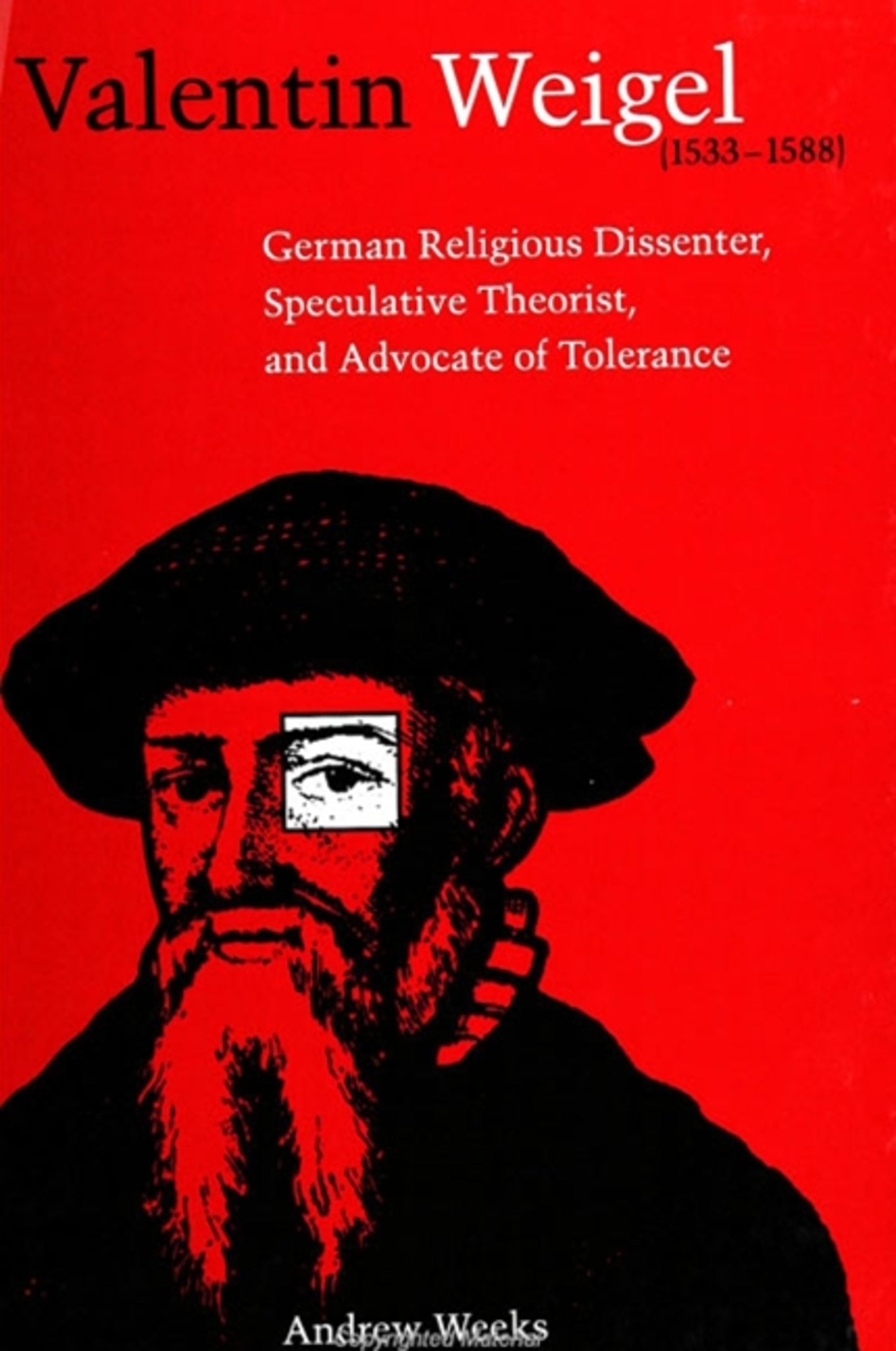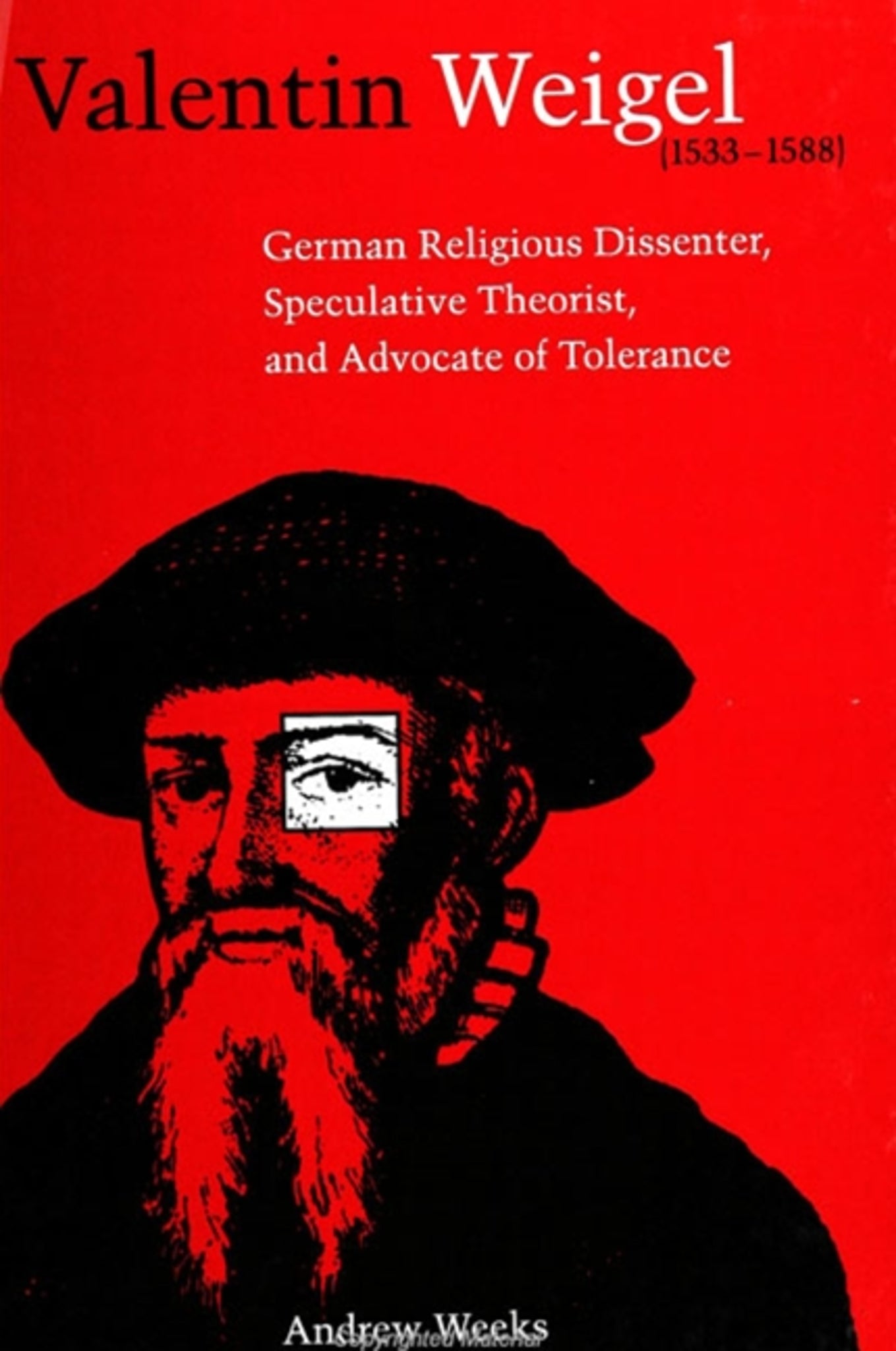We're sorry. An error has occurred
Please cancel or retry.
Valentin Weigel (1533-1588)

Some error occured while loading the Quick View. Please close the Quick View and try reloading the page.
Couldn't load pickup availability
- Format:
-
18 November 1999

This first English-language consideration of Valentin Weigel, an important but neglected figure in German intellectual history, examines his life and his writings on tolerance.
This is the first book-length treatment in English of a central but neglected figure in German intellectual history, Valentin Weigel (1533–1588). Like his great contemporary Michel de Montaigne, Weigel anticipated the advent of a tolerant culture of individual knowledge and conscience. In the wake of the German Reformation, the dissenting Lutheran pastor Weigel argued for the inner autonomy of the lay individual in search of knowledge and salvation. His writing recapitulates the traditions of medieval mysticism (Meister Eckhart, Tauler, the Theologia Germanica), Renaissance philosophy (Cusanus, Paracelsus), and Reformation-era dissent (Sebastian Franck). In Weigel's work, these disparate sources come together in a lucid synthesis that stimulated protest and opposition against intolerance and oppression.
Taking into account the latest research and editorial achievements of scholars in Germany, this book summarizes what is known of Weigel's life, characterizes the conflicts of his times, discusses his sources, analyzes his writing work by work, and considers his impact on the emergence of tolerance in Germany.


"This is an excellent study of Valentin Weigel, a significant figure who has been unjustly overlooked. In his own day Weigel might not have had much influence or stature, but given that many of his ideas were far ahead of his time, and that much of the historical writing on the Reformation has been confessionally-generated, this is not surprising. But due to the very fact that Weigel was so much more in line with the eighteenth and nineteenth centuries than the sixteenth, he presents us with an extremely interesting case study of a man out of joint with his own time. Weeks does a wonderful job of outlining and analyzing Weigel's life and thought, and of placing Weigel in the proper context of late medieval mystical traditions and the doctrinal disputes of the sixteenth century." — Carlos M. N. Eire, Yale University
Preface
Introduction
1. Weigel's Life
Curriculum Vitae
Two Key Episodes
2. The Historical Background
Power against Faith
Authority against Laity
Doctrine against Doctrine
3. Weigel's Place in Tradition
Pietism and Mysticism
The Sources of Weigel's Synthesis
4. Weigel's Early Writings, 1570–1572
Context and Continuity of Weigel's Work
The Path to Self-Knowledge
Gnothi seauton
The Good Life as the Inner Life: De Vita Beata
5. Weigel's Defense and Pastoral Turn in 1572
The Defense
The Manuscript Collection of Sermons
On Prayer
6. Weigel's Resumption of Speculative Writing until 1578
On the Place of the World
The Golden Grasp
7. Protesting Intolerance after the Formula of Concord
On the Life of Christ
The Dialog on Christianity
8. The Problem of Distinguishing the Authentic Later Writings
The Posthumous Compendium of Sermons
The Lazarus Sermon
9. Contemplation of the Creation
"Genesis" and the Design of the World
10. Early Reaction to and Later Reception of Weigel's Work
The Complexities of Influence
Conclusion: Weigel's Idea of Tolerance
Notes
Bibliography
Index



